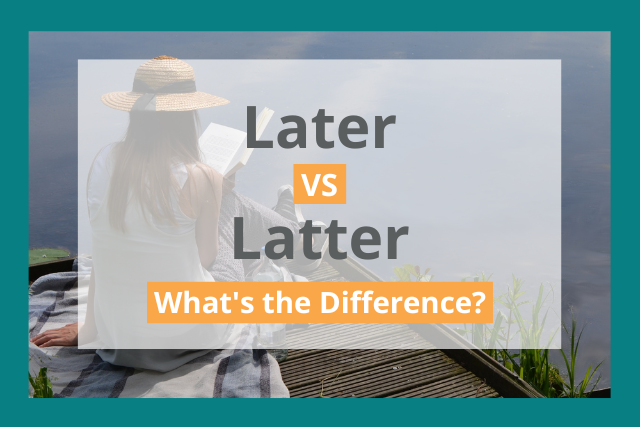
The words later and latter are often confused because they are easy to mistype. Do you know the difference?
Later means at a time subsequent to the current time when used as an adverb.
Latter means relating to the end or most recent when used as an adjective.
A good way to remember the difference is The rhyme: see you LATER, alligator.
The Difference Between Later vs Latter
Later and latter are easy to confuse because they have similar spellings and even similar meanings. However, they are different parts of speech with subtle differences in their meanings. This article will cover the differences.
Later is usually an adverb. It means at a time subsequent to the current time, subsequently, afterward. Occasionally, it can be used as an adjective to mean the opposite of early (the later movie).
Latter is an adjective. It means belonging to a subsequent or later time, more recent. It is the opposite of former.
Is the phrase 'see you later' or 'see you latter'?
The phrase is 'see you later.' These words are often confused because of similar spellings and meanings.
Is the expression 'former or later' or 'former or latter'?
The expression is 'former or latter.' These words are easily confused because they are spelled similarly.
Do we say 'the later days' or 'the latter days'?
We say 'the latter days.' These words are easy to confuse because they have similar spellings and meanings.
Some synonyms for later are: after, subsequent, afterward.
Some synonyms for latter are: terminal, final, last.
